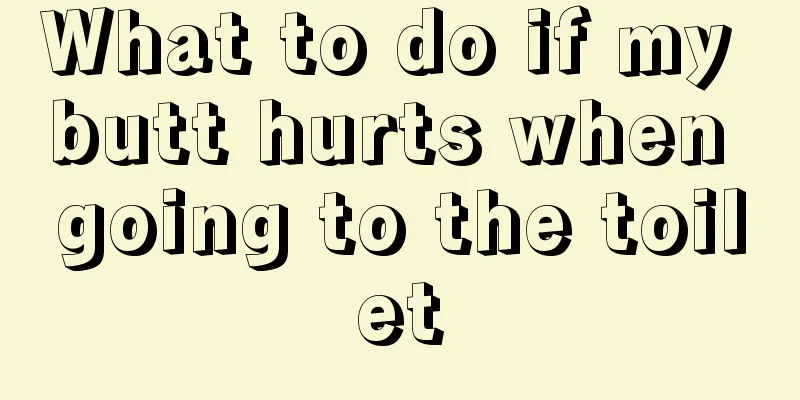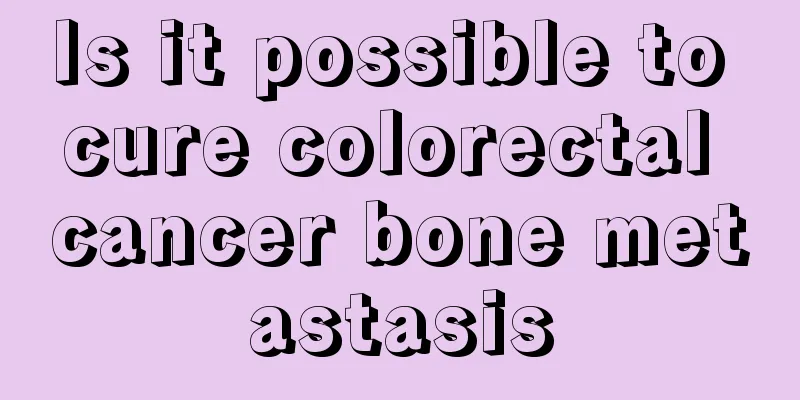What to do if my butt hurts when going to the toilet

|
If you feel pain in your buttocks when going to the toilet, it may be related to inflammation, which mainly includes hemorrhoids caused by anal infection, trauma, foreign objects in the rectum, eating spicy and greasy food for a long time, or due to inflammation and double thrombosis and other factors. Anal pain is very harmful and requires special attention. You should choose the right method to slowly regulate it. Causes Anal pain is not uncommon in clinical practice. Most patients can find a clear cause, but a small number of patients have unclear causes. Generally speaking, the causes of anal pain are roughly the following: Mental factors: mostly caused by mental stress, such as anorectal neurosis, pudendal nerve syndrome, sciatica, and coccygeal neuralgia reflecting to the anus and causing anal pain; Foreign bodies and bad diet stimulation: Trauma, foreign bodies in the rectum, spicy food and alcoholism can all irritate the anus and cause pain; Anorectal infection: anorectal abscess, anal sinusitis, anal papillitis, etc. These diseases can also cause anal pain; Anal diseases: such as incarcerated hemorrhoids, inflammatory external hemorrhoids, thrombosed external hemorrhoids, anal fissures, anal fistulas, etc., can all cause anal pain; Intestinal infection or diarrhea, constipation: Intestinal infection can cause inflammation to irritate the anus. Diarrhea and constipation can cause mechanical irritation of the anus when feces pass through the anus, resulting in anal pain. Anorectal tumors: Whether benign or malignant, infection of the surface mucosa or direct compression of the anus can cause anal pain. Advanced anorectal cancer can invade the nerves and cause severe pain. Anal pain is caused by the rich sensory nerves in the anus. When stimulated, it will cause pain or severe pain, which may manifest as tingling, distension, burning, and heaviness. It may occur during defecation, after defecation, or at other times. There are many reasons for anal pain, which can be summarized into 12 types; such as pain during defecation and anal fissures, anal sinusitis, incarcerated internal hemorrhoids, and edema of external hemorrhoids; persistent pain caused by bacterial dysentery, amoebic intestinal bleeding, ulcerative colitis, thrombosed external hemorrhoids, perianal abscess, secondary infection of anal fistula, rectal cancer, and foreign body injury in the anus; intermittent pain caused by anorectal neurosis, pudendal nerve syndrome, and rectal inflammation. The top ten causes of anal pain can be summarized as follows: (1) The pain caused by anal fissure is cyclical and often occurs during or after defecation. It is mainly caused by irritation from feces and expansion of the ulcer fissure. The pain is paroxysmal burning or knife-like pain and can last for several minutes; the pain subsides after the stool passes. In addition, due to the stimulation of defecation, the internal sphincter may be in continuous spasm, causing severe and persistent pain in the ulcer fissure; it can often last for several hours, and the patient is restless and in great pain; in severe cases, the pain can last for more than 24 hours. In addition to pain, anal fissures are often accompanied by symptoms such as bleeding and constipation. (2) Anal sinusitis Anal sinusitis, also known as anal cryptitis, is an inflammation caused by lesions in the anal crypts. It is generally characterized by slight pain and heaviness in the anus. During defecation, the stool presses on the inflamed anal sinuses, causing burning pain in the anus. If the sphincter contracts due to stimulation, the pain will intensify and radiate to the buttocks and posterior thigh. It is often accompanied by a small amount of purulent or mucous secretion with a foul odor, which may cause moisture, itching and other discomforts around the anus over time. (3) Patients with mild thrombosed external hemorrhoids may experience a foreign body sensation, often accompanied by swelling and pain. Due to damage to the perianal veins, blood clots form thrombi, and purple round hard nodules appear under the outer skin of the anus, usually at 3 o'clock and 9 o'clock in the lithotomy position. |
<<: There are two black spots on the buttocks
>>: How to reduce the buttocks that are too upturned
Recommend
Painful urination and low urine volume
Under normal circumstances, people will not exper...
How to tell if dumplings are cooked
Although modern diet is rich and diverse, it cann...
What harm will the body suffer after complete removal of thyroid cancer
What harm will a total thyroidectomy do to the bo...
How to use the cervical traction belt
Nowadays, society is developing faster and faster...
What kind of milk can help a 14-year-old grow taller?
14 years old is the golden period for each of us ...
What are the drugs for treating bladder cancer
Bladder cancer can be divided into many categorie...
What causes toothache caused by wind and fire and what is the treatment method
Young people nowadays are either busy with studie...
What is bronchiectasis?
In our daily lives, we often hear about the disea...
Is it necessary to get a flu shot?
The flu that people often talk about is also the ...
How long does it take to see the embryo after the yolk sac is found
Under normal circumstances, women need to have re...
Haptoglobin is high
Haptoglobin, also known as haptoglobin, is an imp...
Can travel cure depression?
Nowadays, social pressure is increasing, and many...
Symptoms of melanoma often appear in life
Among the many surgical diseases, perhaps less is...
What foods should lung cancer patients not eat? Dietary considerations during the treatment of lung cancer
Experts point out that the treatment of cancer ca...
There is a white hair on the leg
It is normal to have hair on the body, especially...









